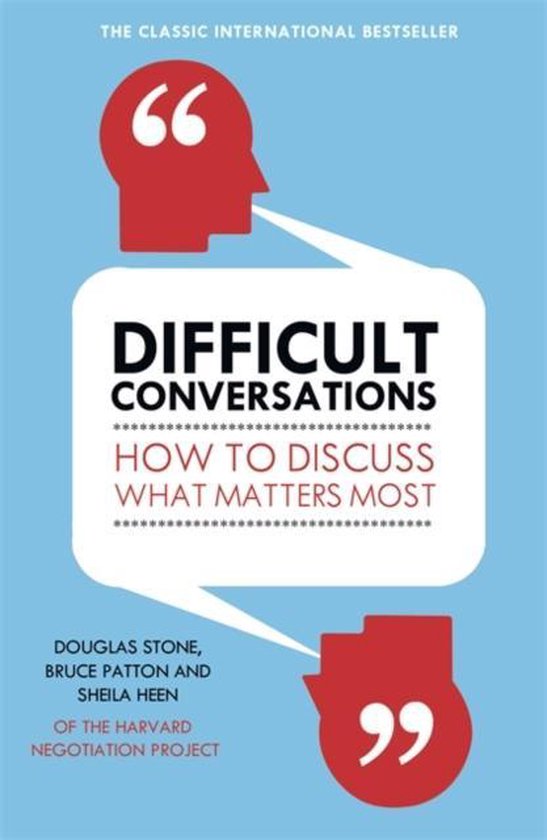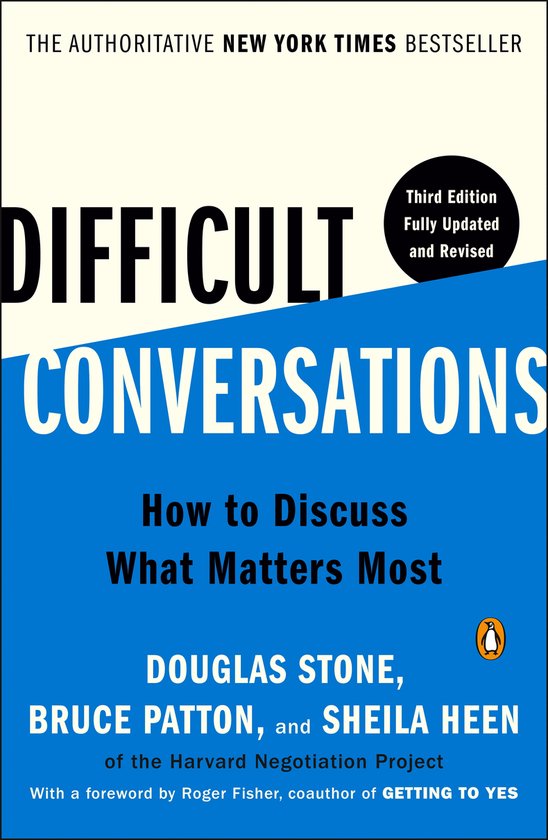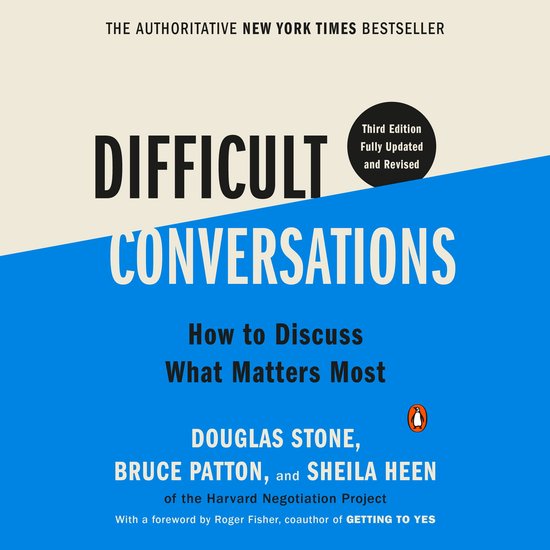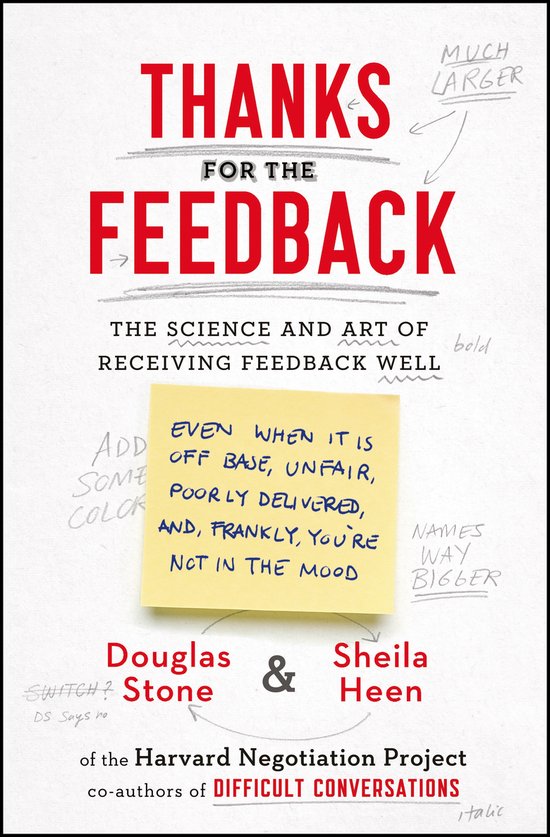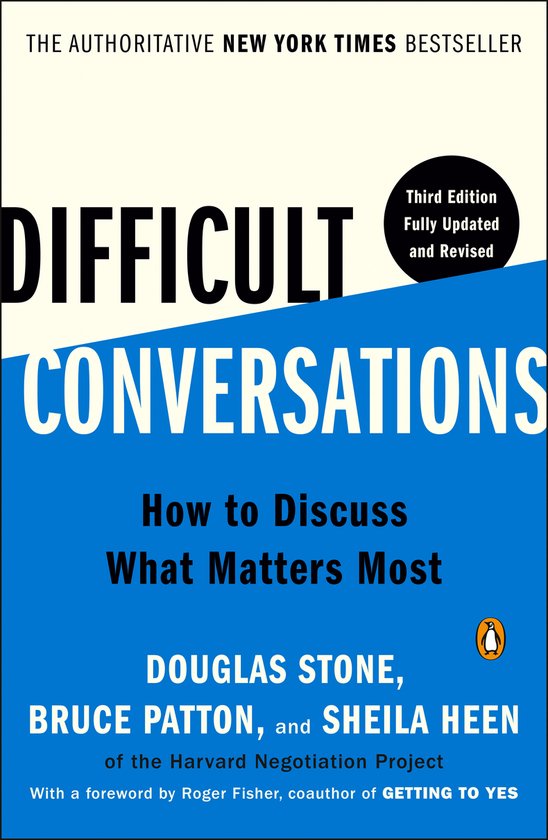
Difficult Conversations
The third edition of the classic book offering a step-by-step approach to have the toughest conversations with less stress and more success
When Difficult Conversations was first published in 1999, it was a groundbreaking book that helped readers improve how they managed their discussions on the most fraught subjects. Simple, clear, and broadly applicable, it was translated into two dozen languages, was used in many different and interesting contexts.
In 2010, a second edition was published with new content based on what the authors had learned since the original publication, and together the two editions have shipped nearly two million copies. Now, in this third edition, they revisit some of their assumptions and examples and give more space to certain topics that werent explored adequately in prior editions. Their new material will cover the questions and insights offered by students, colleagues, and readers about such timely issues as race, culture, and gender, and how conversations about them intersect with realities of power and equity. Among the subjects the authors consider are: what if listening empathetically is too painful, a disproportionate burden to one side, or a distraction from working toward deeper change? How can one discuss joint contribution to a problem without blaming the victim?
With thoughtful communication an ever more critical aspect of both professional and personal life, this new edition of an established classic will be an essential guide for productive and informed discussions.
When Difficult Conversations was first published in 1999, it was a groundbreaking book that helped readers improve how they managed their discussions on the most fraught subjects. Simple, clear, and broadly applicable, it was translated into two dozen languages, was used in many different and interesting contexts.
In 2010, a second edition was published with new content based on what the authors had learned since the original publication, and together the two editions have shipped nearly two million copies. Now, in this third edition, they revisit some of their assumptions and examples and give more space to certain topics that werent explored adequately in prior editions. Their new material will cover the questions and insights offered by students, colleagues, and readers about such timely issues as race, culture, and gender, and how conversations about them intersect with realities of power and equity. Among the subjects the authors consider are: what if listening empathetically is too painful, a disproportionate burden to one side, or a distraction from working toward deeper change? How can one discuss joint contribution to a problem without blaming the victim?
With thoughtful communication an ever more critical aspect of both professional and personal life, this new edition of an established classic will be an essential guide for productive and informed discussions.
| Auteur | | Douglas Stone |
| Taal | | Engels |
| Type | | Paperback |
| Categorie | | Mens & Maatschappij |
